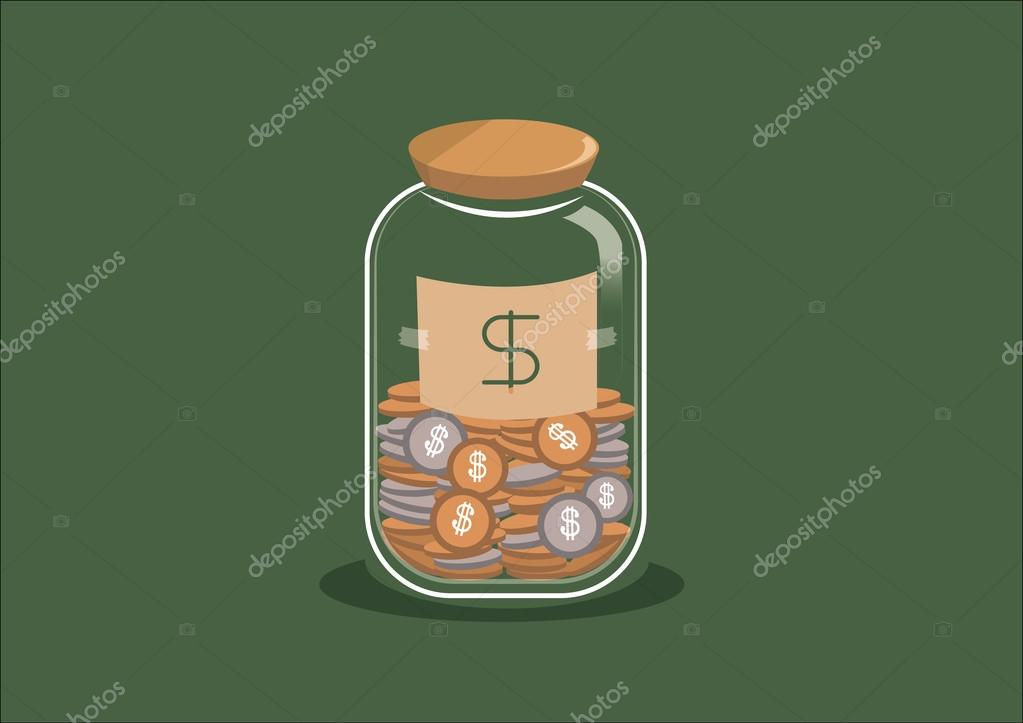Ahorrar y gastar - 5 minutos de español /To save and to spend. 5 minutes of Spanish.(English & Spanish version). Podcast
English version
How are you? Good morning, good afternoon or good evening depending on where you are or what time you are listening to us. Thank you very much for being with us week after week listening to these 5 minutes of Spanish.
Last Wednesday we commented that the verb to save in
English is translated as guardar, salvar or ahorrar, depending on the intention
of the speaker.
We already talked about guardar and salvar if you want
to listen to it again we leave you here the link to the podcast on our blog.
Today we are going to focus on ahorrar.
It is a regular verb and can also be used as a
reflexive (ahorrarse).
For the Spanish student the difficulty is the
pronunciation because it has a hache (h) between the a and the o, which is not
pronounced and then the double erre that for some is difficult to pronounce:
ahorro.
The same sound as rock, perro, carro, Roma.
Let's say it without fear: ahorro
It is a word that is used a lot, I remember my
grandmother saying:
"El ahorro
es la base de la fortuna" Saving is the basis of fortune.
The opposite of saving is spending.
That is why those who teach us to save tell us wise
phrases like:
"Saving is not only putting money away, but also
knowing how to spend it”
This anonymous advice could well be signed by a mother
or a father. If you know how to spend, you have come a long way in order to
save. Knowing how to spend is not only to control your spending, it is to spend
wisely.
Eliminé muchas apps para ahorrar la batería de mi celular,
era una locura la batería se gastaba en horas.
I deleted many apps to save the battery of my cell
phone, it was crazy, the battery was spent in hours.
Ahorro mi dinero en mi caja de ahorro para el próximo
viaje.
I save money in my saving account for the next trip.
Una persona puede ser ahorrativa o gastadora
Mi nuera compra solo lo necesario, es muy ahorrativa. Mi
nuera significa daughter-in-law….generalmente no escuchamos este elogio.
The adjective
ahorrativo/a is positive, but (however) gastador or gastadora is very negative.
My daughter-in-law buys
only what she needs, she is very thrifty. My daughter-in-law means
daughter-in-law....we don't usually hear this compliment.
My daughter-in-law buys only what she needs, she is
very thrifty.
¿Qué
pasa si es muy, pero muy ahorrativa?
Mm then this person is cheap and this is not so
positive.
Mmm, entonces es una persona coda (cheap) y esto no es tan
positivo..
For me is value this
phrase: “A penny saved is a penny earned”
Pero
para mí es válida la frase: Un centavo ahorrado es un centavo ganado. “A penny saved is a
penny earned” Esta frase es de Benjamin Franklin
Let´s see other uses of
ahorrar:
Cuando la pantalla está apagada, el
sistema ahorra energía automáticamente.
When the screen is off, the system
automatically conserves power.
El 22 de marzo fue el día mundial del
agua, tenemos que ser conscientes y ahorrar el oro líquido es algo muy
importante.
March 22 was World Water Day, we
have to be aware and save the golden liquid it’s very important.
Se puede ahorrar agua, energía, dinero y
también ahorrar tiempo.
You
can save wáter, energy, money and also time.
Are
you interest in saving time and money?
¿Te interesa ahorrar tiempo y dinero?
Pues si la respuesta es sí, entonces, ya
mismo sigue este link y por 1 dólar vas a tener 1 mes de práctica en nuestro
sitio SpanishUp2U, ideal para mejorar tu español con videos y podcasts a tu
medida.
Well, if the answer is yes, follow this link and for 1
dollar you will have 1 month of practice in our site SpanishUp2U, ideal to
improve your Spanish with videos and podcasts tailored to your needs.
Ya ves que no te ahorraste la tanda comercial, nos gustaría
que visitaras nuestro sitio SpanishUp2U y lo probaras, seguro que es para ti.
¿Qué tal? Buenos días, buenas tardes o buenas noches según
en el lugar donde estés o a la hora en la que nos escuches. Muchas gracias por
estar con nosotros semana tras semana escuchando estos 5 minutos de español.
El
miércoles pasado comentamos que el verbo to
save en inglés se traduce como guardar, salvar o ahorrar, según la
intención del hablante.
Ya hablamos de guardar y salvar si lo quieres volver a
escuchar te dejamos aquí el enlace del podcast
en nuestro blog. Hoy vamos a concentrarnos en ahorrar.
Es un
verbo regular y también puede usarse como reflexivo (ahorrarse).
Para el estudiante de español la dificultad es la
pronunciación pues lleva una hache (h) entre la a y la o, que no se pronuncia y
luego la doble erre que para algunos es difícil de pronunciar: ahorro.
El
mismo sonido que rock, perro, carro, Roma.
A ver dilo sin miedo: ahorro
Es una palabra que se usa mucho, recuerdo a mi abuela
diciendo: “El ahorro es la base de la fortuna” Saving is the basis of fortune
Lo
opuesto de ahorrar es gastar.
Por eso quienes nos enseñan a ahorrar nos dicen sabias
frases como:
“Ahorrar no es solo guardar, sino saber gastar”
"Saving is not only putting money away, but also knowing how to
spend it”
Este consejo anónimo bien lo podría
firmar una madre o un padre. Si sabes gastar, llevas mucho andado para poder
ahorrar. Saber gastar no es solo controlarte en el gasto, es gastar con
sabiduría.
This anonymous advice could well be signed by a mother
or a father. If you know how to spend, you have come a long way in order to
save. Knowing how to spend is not only to control your spending, it is to spend
wisely.
Eliminé muchas apps para ahorrar la batería de mi celular,
era una locura la batería se gastaba en horas.
I deleted many apps to save the battery of my cell
phone, it was crazy, the battery was spent in hours.
Ahorro mi dinero en mi caja de ahorro para el próximo
viaje.
I save money in my savings account for the next trip.
Una persona puede ser ahorrativa o gastadora
El
adjetivo ahorrativo/a es positivo, sin embargo (however) gastador o gastadora
es muy negativo.
Mi nuera compra solo lo necesario, es muy ahorrativa. Mi
nuera significa daughter-in-law….generalmente no escuchamos este elogio.
My daughter-in-law buys only what she needs, she is
very thrifty.
¿Qué
pasa si es muy, pero muy ahorrativa?
Mmm, entonces es una persona coda (cheap) y esto no es tan
positivo..
Pero
para mí es válida la frase: Un centavo ahorrado es un centavo ganado. “A penny saved is a
penny earned” Esta frase es de Benjamin Franklin
Veamos otro uso de
ahorrar que es conservar o mantener.
Cuando la pantalla está apagada, el sistema ahorra energía automáticamente.
When the screen is off, the system
automatically conserves power.
El 22 de marzo fue el día mundial del
agua, tenemos que ser conscientes y ahorrar el oro líquido es algo muy
importante.
March 22 was World Water Day, we
have to be aware and save the golden liquid it’s very important.
Se puede ahorrar agua, energía, dinero y
también ahorrar tiempo.
¿Te interesa ahorrar tiempo y dinero?
Pues si la respuesta es sí, entonces, ya
mismo sigue este link y por 1 dólar vas a tener 1 mes de práctica en nuestro
sitio SpanishUp2U, ideal para mejorar tu español con videos y podcasts a tu
medida.
Well, if the answer is yes, follow this link and for 1
dollar you will have 1 month of practice in our site SpanishUp2U, ideal to
improve your Spanish with videos and podcasts tailored to your needs.
Ya ves que no te ahorraste la tanda comercial, nos gustaría
que visitaras nuestro sitio SpanishUp2U y lo probaras, seguro que es para ti.
Muchas
gracias por llegar hasta aquí en el podcast.
Si te gustó compártelo
Nos
vemos en los talleres de SpanishUp2U, en nuestras clases, en el taller de los
viernes, en Facebook o el próximo miércoles.
No te ahorres los comentarios en el canal de YouTube deSpanish in Cabo
Hasta pronto,
Chau chau






Comentarios
Publicar un comentario